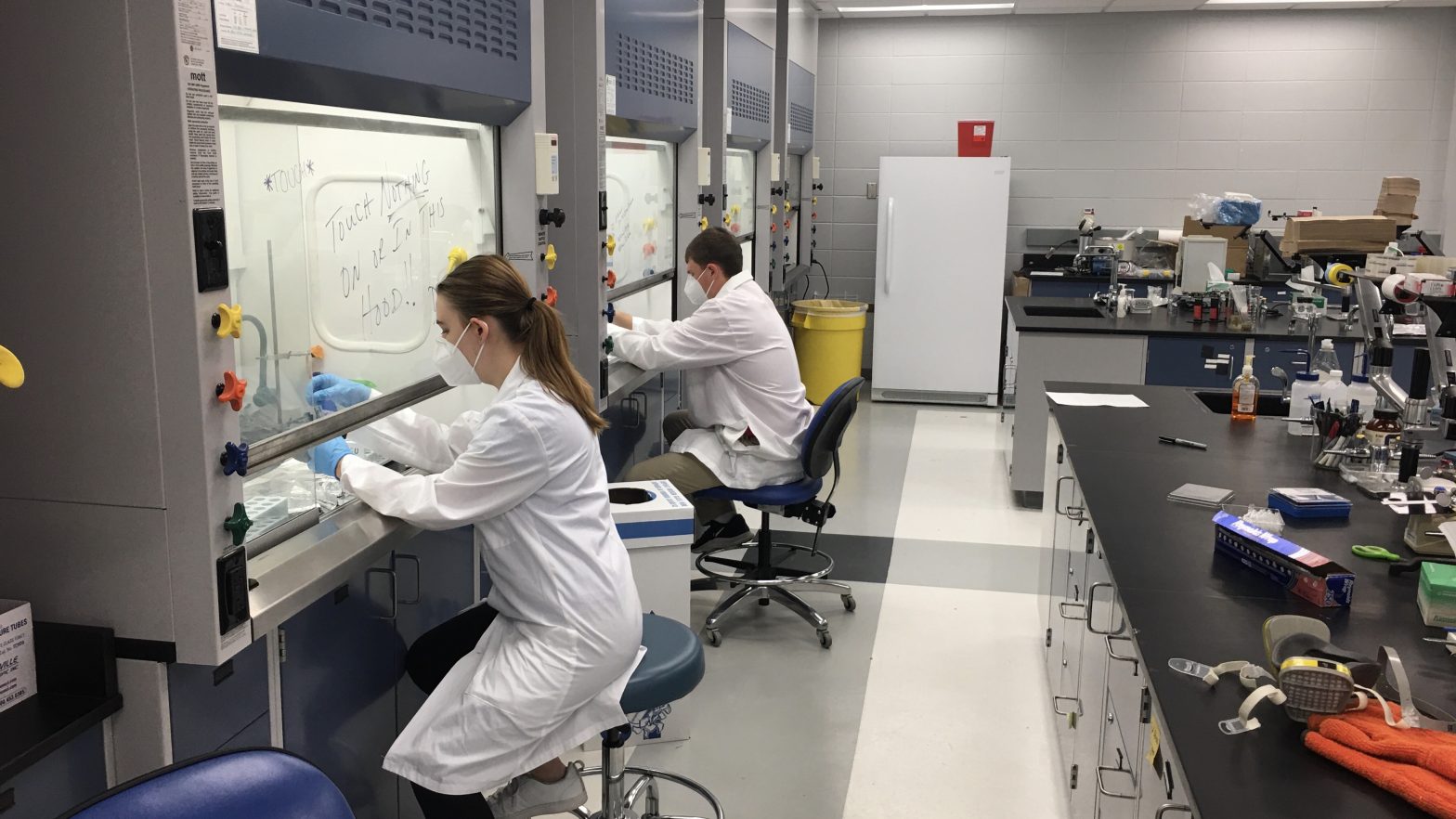Spotlight: Summer 2020 DSU Research

From left to right, Christina Maloney (Illinois) and Sammy Drummond (Australia) at Gaylor’s lab.
Through astrobiological research conducted the summer of 2020, four Dakota State University (DSU) students studied chemical compounds and minerals found throughout the solar system that — in certain planetary environments — undergo chemical reactions that produce molecules essential for life.
The ability to adapt to sudden, unexpected change, always a valuable skill, is especially helpful these days. It’s a skill that Dr. Michael Gaylor’s team of research students at Dakota State University (DSU) in Madison, South Dakota, began practicing daily in early May of 2020.
Dr. Michael Gaylor, associate research professor of chemistry, welcomed this first cohort of undergraduate students participating in an intensive 10-week research and training program.
Due to COVID-19 travel/work restrictions, Gaylor met regularly with his four students via Zoom meetings, WhatsApp and email messaging. Through these forums, the team began reading/discussing the relevant literature, reviewing/discussing previous foundational data sets generated in the Gaylor Lab during the academic year, and learning the theory and techniques they would be using in the lab.
Under Dr. Gaylor’s mentorship, the students conducted planetary simulation experiments aimed at determining how non-living chemistry could have transitioned to living chemistries on the primordial Earth some 4-billion years ago.
Despite COVID-19 travel/work restrictions, the students found that chemicals called polycyclic aromatic hydrocarbons (or “PAHs”) — abundant on present-day Earth and within meteorites and believed important for jumpstarting life — undergo reactions in the presence of catalytic minerals common on the planets and moons of our solar system. They produce some of the very same chemicals that make cellular life possible on Earth today.
The team’s longer-term goal is to use these findings to develop diagnostic methods to identify these same types of chemical reactions happening on other planets as possible indicators of the existence of life.
According to Gaylor, “The NSF EPSCoR funding provided the funds to support these ambitious, talented students who may otherwise had to work summer jobs that would not have advanced their preparation for post-graduate study.”
The students continue their research efforts this fall.
- Jared Dewitt (Colman, South Dakota) is now a sophomore concentrating in chemistry at DSU and plans to enter a MD-PhD program after graduation.
- Sammy Drummond (Melbourne, Australia) is now a senior concentrating in physics and chemistry at DSU. He plans to pursue graduate studies in physics after graduation.
- Christina Mulu (Addis Ababa, Ethiopia) is now a sophomore concentrating in chemistry, mathematics, and computer science. She plans to pursue doctoral studies in biochemistry after graduation.
- Christina Maloney (Rockford, Illinois) is now a junior concentrating in biology and chemistry at Iowa State University. She plans to study veterinary medicine after graduation.
 National Science Foundation RII Track-1 Project:Expanding Research, Education and Innovation in South Dakota
National Science Foundation RII Track-1 Project:Expanding Research, Education and Innovation in South Dakota